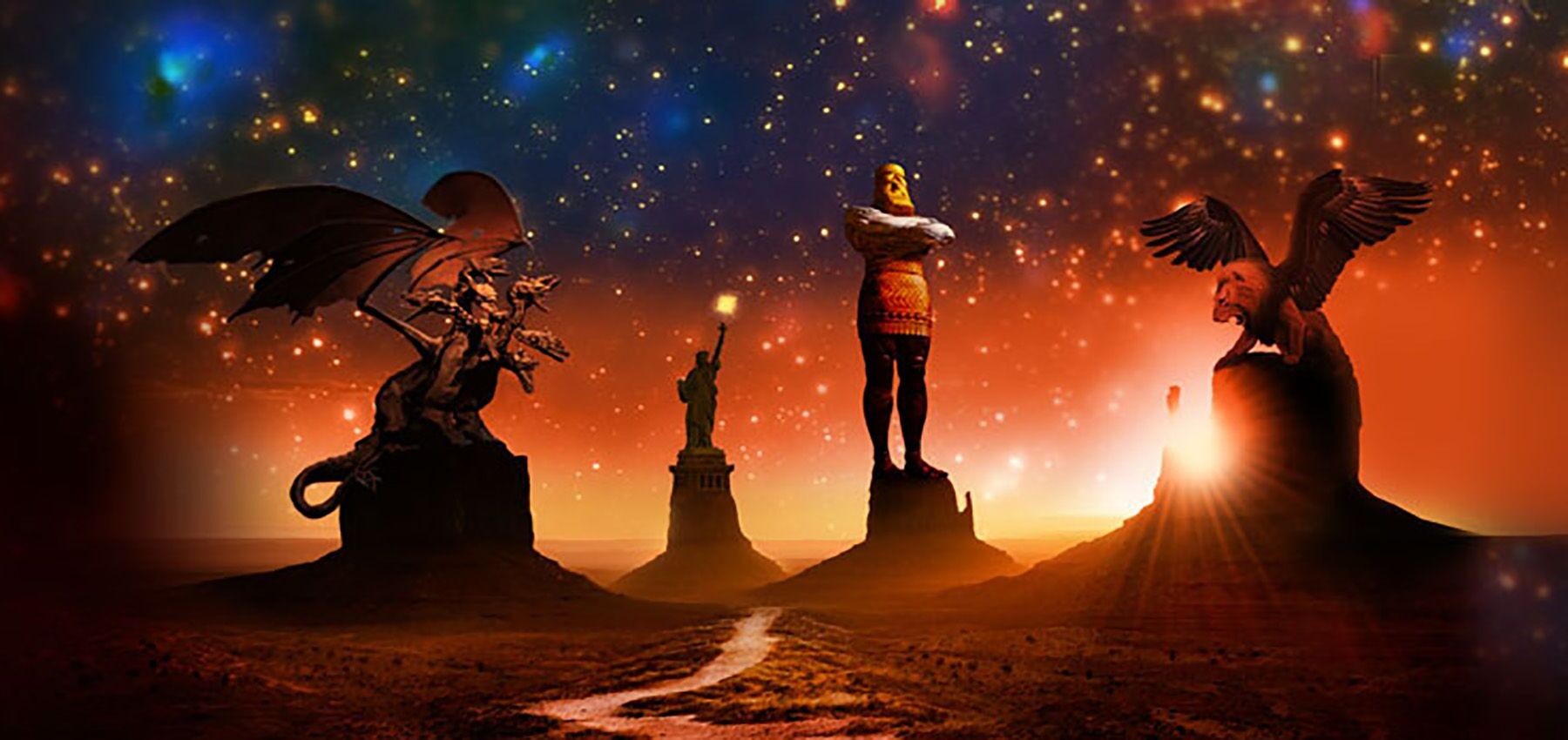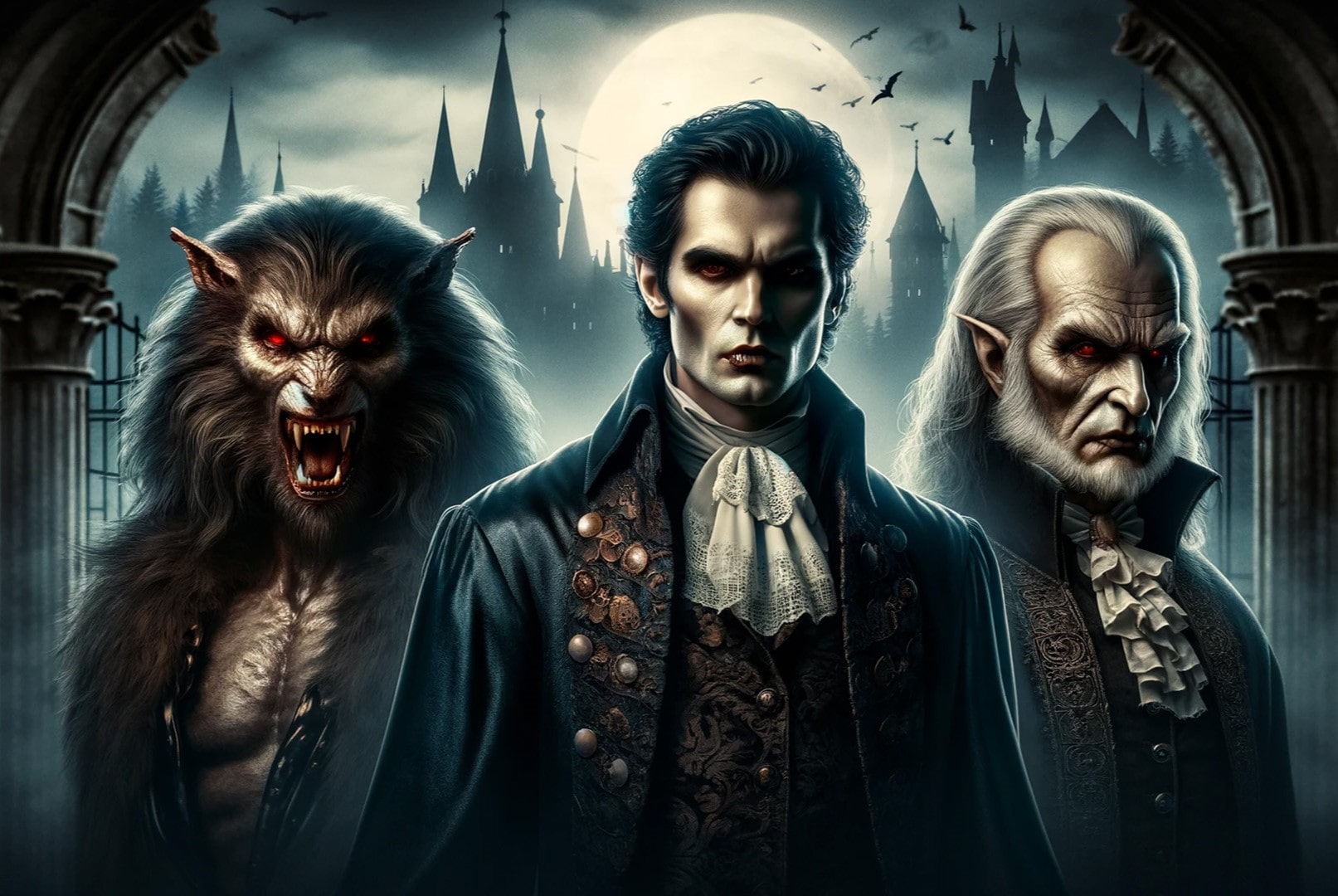
Prophecy has always fascinated people, sparking curiosity and debate. From ancient oracles to modern-day predictions, the idea of foretelling the future captivates minds across cultures. But what exactly is prophecy? Prophecy is a message claimed by a prophet to have been communicated to them by a deity. These messages often contain divine guidance, warnings, or predictions about future events. Throughout history, prophecies have influenced decisions, shaped cultures, and even altered the course of events. Whether you believe in their mystical power or see them as mere coincidences, there's no denying the impact of prophecy on human history. Ready to dive into some intriguing facts about prophecy? Let's get started!
What is Prophecy?
Prophecy has fascinated humans for centuries. It often involves predicting future events or revealing hidden knowledge through divine inspiration. Here are some intriguing facts about prophecy that might surprise you.
-
Prophecy in Ancient Cultures: Many ancient civilizations, including the Egyptians, Greeks, and Mayans, had their own prophets and seers. They believed these individuals could communicate with gods or spirits to foretell the future.
-
Oracle of Delphi: The Oracle of Delphi in ancient Greece was one of the most famous prophetic sites. People traveled from far and wide to seek guidance from the Pythia, the priestess who delivered prophecies.
-
Biblical Prophets: The Bible features numerous prophets such as Isaiah, Jeremiah, and Ezekiel. These figures played crucial roles in conveying God's messages to the people of Israel.
-
Nostradamus: Michel de Nostredame, known as Nostradamus, was a 16th-century French astrologer and physician. His book "Les Prophéties" contains hundreds of quatrains that some believe predict future events.
-
Prophecy in Islam: In Islam, prophets are considered messengers of God. Muhammad is regarded as the last prophet, and the Quran contains many prophecies.
Types of Prophecies
Prophecies come in various forms, each with unique characteristics. Understanding these types can provide deeper insights into the nature of prophecy.
-
Apocalyptic Prophecies: These predict the end of the world or significant cataclysmic events. The Book of Revelation in the Bible is a well-known example.
-
Messianic Prophecies: These foretell the coming of a savior or messiah. Christians believe that Jesus Christ fulfilled many messianic prophecies from the Old Testament.
-
Personal Prophecies: These are specific to individuals, offering guidance or warnings about their future. Many people seek personal prophecies from spiritual leaders or psychics.
-
Conditional Prophecies: These depend on certain conditions being met. For example, a prophecy might state that a disaster will occur unless people change their behavior.
-
Symbolic Prophecies: These use symbols and metaphors to convey their messages. Interpreting these prophecies often requires understanding the symbolic language used.
Famous Prophecies and Their Impact
Some prophecies have had a profound impact on history and culture. Here are a few notable examples.
-
The Prophecy of the Popes: Attributed to Saint Malachy, this prophecy lists 112 popes, supposedly predicting the characteristics of each. Some believe it foretells the end of the papacy.
-
The Mayan Calendar: The Mayan Long Count calendar ended on December 21, 2012, leading to widespread speculation about an impending apocalypse. The date passed without incident.
-
The Fatima Prophecies: In 1917, three Portuguese children reported visions of the Virgin Mary, who gave them three secrets. These prophecies included predictions about World War II and the assassination attempt on Pope John Paul II.
-
The Great Fire of London: Nostradamus is often credited with predicting the Great Fire of London in 1666. His quatrains are open to interpretation, leading to various claims about their accuracy.
-
The Prophecy of the Eagle and the Condor: This indigenous prophecy from the Americas speaks of a time when the peoples of the North (Eagle) and South (Condor) will reunite, bringing harmony to the world.
Modern-Day Prophecies
Prophecy isn't just a thing of the past. Even today, people continue to make and believe in prophecies.
-
Edgar Cayce: Known as the "Sleeping Prophet," Edgar Cayce gave thousands of psychic readings while in a trance state. His prophecies covered topics from health to future events.
-
Jeane Dixon: An American psychic, Jeane Dixon, claimed to have predicted the assassination of President John F. Kennedy. Her predictions were published in newspapers and books.
-
The Bible Code: Some believe that hidden messages and prophecies can be found in the Bible using a code or pattern. This idea gained popularity with the publication of "The Bible Code" by Michael Drosnin.
-
The Prophecies of Baba Vanga: A blind Bulgarian mystic, Baba Vanga, made numerous predictions about world events. Some followers claim her prophecies have come true, including the 9/11 attacks.
-
Astrological Predictions: Many people turn to astrology for insights into their future. Astrologers create horoscopes based on the positions of celestial bodies at the time of a person's birth.
Prophecy in Popular Culture
Prophecy has also found its way into literature, movies, and other forms of entertainment. These fictional prophecies often captivate audiences and add depth to stories.
-
Harry Potter: In J.K. Rowling's "Harry Potter" series, a prophecy foretells the battle between Harry and Voldemort. This prophecy drives much of the plot throughout the books.
-
The Matrix: The film "The Matrix" features a prophecy about "The One," a person destined to free humanity from the machines. This prophecy is central to the story's conflict.
-
The Lord of the Rings: J.R.R. Tolkien's epic includes prophecies about the return of the king and the defeat of Sauron. These prophecies shape the characters' quests and decisions.
-
Star Wars: The Star Wars saga includes a prophecy about the Chosen One who will bring balance to the Force. Anakin Skywalker is believed to be this Chosen One.
-
Game of Thrones: George R.R. Martin's "A Song of Ice and Fire" series, adapted into the TV show "Game of Thrones," features several prophecies. These include the Prince That Was Promised and the visions of the Red Priestess Melisandre.
Skepticism and Criticism
Not everyone believes in prophecy. Skeptics and critics often challenge the validity and accuracy of prophetic claims.
-
Self-Fulfilling Prophecies: Some argue that prophecies can become self-fulfilling. People might unconsciously act in ways that bring about the predicted events.
-
Vague Language: Critics point out that many prophecies use vague or ambiguous language. This allows for multiple interpretations, making it easier to claim accuracy after events occur.
-
Confirmation Bias: Believers might focus on prophecies that seem accurate while ignoring those that don't. This selective attention can reinforce belief in prophecy.
-
Cold Reading: Some modern-day prophets and psychics use techniques like cold reading to give the impression of supernatural insight. They make broad statements that can apply to many people.
-
Scientific Explanations: Scientists often seek natural explanations for prophetic experiences. For example, visions and revelations might result from psychological or neurological conditions.
Prophecy and Religion
Prophecy plays a significant role in many religious traditions. It often serves as a means of communication between the divine and humanity.
-
Hindu Prophecies: Hindu scriptures contain prophecies about the future, including the coming of Kalki, the tenth avatar of Vishnu, who will restore righteousness.
-
Buddhist Prophecies: Buddhism includes prophecies about the future Buddha, Maitreya, who will appear to teach the Dharma after it has been forgotten.
-
Zoroastrian Prophecies: Zoroastrianism, one of the world's oldest religions, includes prophecies about the end times and the coming of a savior figure, Saoshyant.
-
Native American Prophecies: Many Native American tribes have their own prophetic traditions. These often emphasize harmony with nature and warnings about environmental destruction.
-
Sikh Prophecies: Sikhism includes prophecies about the future, such as the coming of a great leader who will unite humanity.
Prophecy and Science Fiction
Science fiction often explores themes of prophecy and prediction, blending them with futuristic and technological elements.
-
Dune: Frank Herbert's "Dune" series features prophecies about the Kwisatz Haderach, a superhuman leader. These prophecies drive much of the plot and character motivations.
-
Foundation: Isaac Asimov's "Foundation" series introduces the concept of psychohistory, a scientific method of predicting future events. This blends prophecy with mathematical and statistical analysis.
-
Minority Report: The film "Minority Report," based on a story by Philip K. Dick, explores the idea of using precognitive individuals to prevent crimes before they happen. This raises ethical questions about free will and determinism.
-
The Terminator: The "Terminator" franchise includes prophecies about a future war between humans and machines. Characters struggle with the idea of changing or fulfilling these predictions.
-
Blade Runner: "Blade Runner," based on Philip K. Dick's novel, delves into themes of identity and destiny. The replicants' quest for longer life can be seen as a search for a different future than the one predicted for them.
Final Thoughts on Prophecy
Prophecy has fascinated people for centuries. From ancient oracles to modern-day predictions, the idea of foreseeing the future captivates our imagination. Whether you believe in the power of prophecy or view it with skepticism, there's no denying its impact on cultures and societies throughout history. Prophecies have shaped decisions, inspired literature, and even influenced political movements. While some predictions have come true, others remain mysterious or unfulfilled. The allure of prophecy lies in its blend of mystery, hope, and sometimes, fear. As we continue to explore the unknown, the quest for understanding prophecy will likely endure. Keep an open mind, question what you hear, and remember that the future is always in motion. Who knows what tomorrow holds?
Was this page helpful?
Our commitment to delivering trustworthy and engaging content is at the heart of what we do. Each fact on our site is contributed by real users like you, bringing a wealth of diverse insights and information. To ensure the highest standards of accuracy and reliability, our dedicated editors meticulously review each submission. This process guarantees that the facts we share are not only fascinating but also credible. Trust in our commitment to quality and authenticity as you explore and learn with us.


